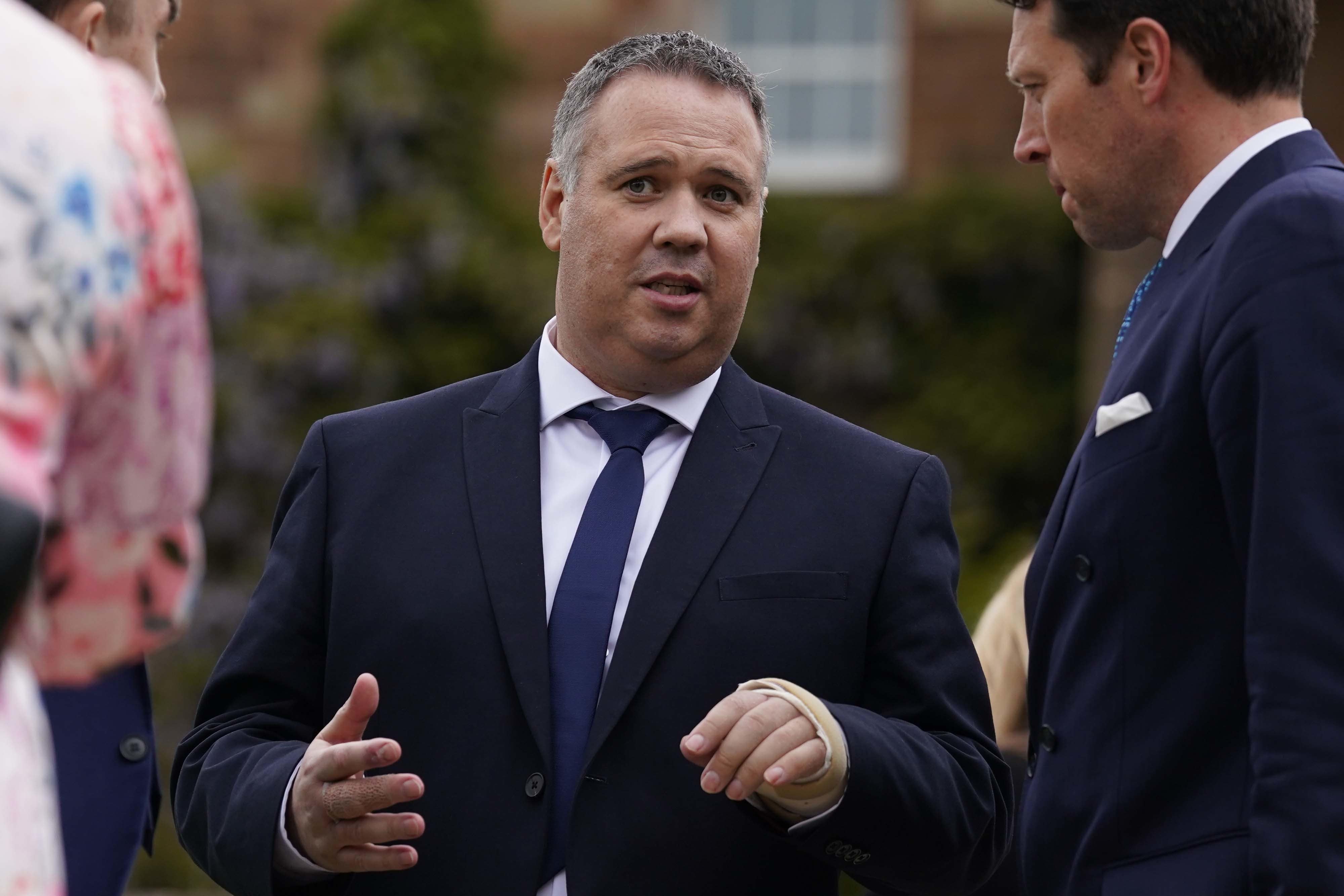Seven men remanded in custody charged with murder bid on senior detective
PSNI detective chief inspector John Caldwell was shot several times at a sports complex in Omagh in February.

Your support helps us to tell the story
From reproductive rights to climate change to Big Tech, The Independent is on the ground when the story is developing. Whether it's investigating the financials of Elon Musk's pro-Trump PAC or producing our latest documentary, 'The A Word', which shines a light on the American women fighting for reproductive rights, we know how important it is to parse out the facts from the messaging.
At such a critical moment in US history, we need reporters on the ground. Your donation allows us to keep sending journalists to speak to both sides of the story.
The Independent is trusted by Americans across the entire political spectrum. And unlike many other quality news outlets, we choose not to lock Americans out of our reporting and analysis with paywalls. We believe quality journalism should be available to everyone, paid for by those who can afford it.
Your support makes all the difference.Seven men have been remanded in custody after appearing before a court charged with the attempted murder of a senior PSNI detective.
Detective chief inspector John Caldwell was shot several times outside a sports complex in Omagh, Co Tyrone, in February.
Mr Caldwell had been coaching a youth football match and was with his young son at the time of the attack.
The so-called New IRA claimed responsibility for the shooting, with police investigating if the dissident republican group may have been assisted by members of a criminal gang.
The seven accused who appeared via videolink at Dungannon Magistrates’ Court on Monday morning were: Jonathan McGinty, 28, of St Julians Downs, Omagh; Brian Carron, 38, of Claremount Drive, Coalisland; Gavin Coyle, 45, of Killybrack Mews, Omagh; Matthew McLean, 33, Glenpark Road, Omagh; Robert McLean, 29, Deverney Park, Omagh; James Ivor McLean, 72, of Deverney Park, Omagh; and Alan McFarland, 47, of Deverney Park, Omagh.
Carron and Coyle stand further accused of belonging to a proscribed organisation, namely the IRA.
McGinty, McFarland and Matthew McLean are also charged with preparation of terrorist acts.
This has been a very wide-ranging conspiracy
Three of the seven accused made bail applications on Monday – Coyle, James Ivor McLean and McGinty.
Lawyers for the three questioned the strength of the evidence against their clients.
McGinty’s solicitor also claimed that representatives from MI5 had approached his client while he was in police custody.
While a solicitor for Carron did not make a bail application, indicating it would be made at a later date, he did challenge the basis upon which police were connecting his client to the charges.
District judge Steven Keown refused bail for all three applicants on the grounds of risk of further offending and potential interference with the police investigation.
“This was clearly a meticulously planned attack, with the sad reality being that those involved in such attacks clearly hold the view that they will continue to engage in such attacks if they have the opportunity,” said the judge.
All seven were remanded in custody to appear before Omagh Magistrates’ Court, via videolink, on June 27.
James Ivor McClean and his two sons Robert and Matthew appeared before the court alongside McFarland, all via videolink from a police custody suite.
McGinty, Carron and Coyle then appeared separately, also from police custody.
Six of the accused spoke to confirm their age, addresses and that they understood the charges against them.
Carron did not respond when asked.
During the lengthy remand hearing covering the prosecution cases against the seven accused, a PSNI detective chief inspector set out the evidence police believe connects them to the charges they face.
He outlined details around the movements of three cars involved in the attack – a Mercedes and two Ford Fiestas – and other vehicles allegedly used in the subsequent clean-up and disposal operation.
The officer told the court how police have made various links, based on CCTV evidence, to the vehicles and the accused both in the lead up and the aftermath of the attack.
The detective also highlighted cartridge discharge residue (CDR) traces allegedly found on various items belonging to or associated with several of the accused.
These included particles detected on a hat allegedly owned by Carron that, the officer said, match CDR particles found on Mr Caldwell’s clothes after he was shot.
The officer said police believe there was a “personal element” to the attack on DCI Caldwell, telling the court the senior detective was “intimately involved” in investigations into several of the accused.
He said that potential grudge against Mr Caldwell was the “golden thread” linking a number of the accused.
“This has been a very wide-ranging conspiracy,” he added.
The detective said Mr Caldwell was aware of several threats to his life dating back years.
He said there remains a “real concern” for his safety.
Mr Caldwell spent several weeks in intensive care after the shooting.
He was later discharged from hospital and last week made his first public appearance since the attack when he attended a garden party at Hillsborough Castle as part of the visit of the King and Queen to Northern Ireland.